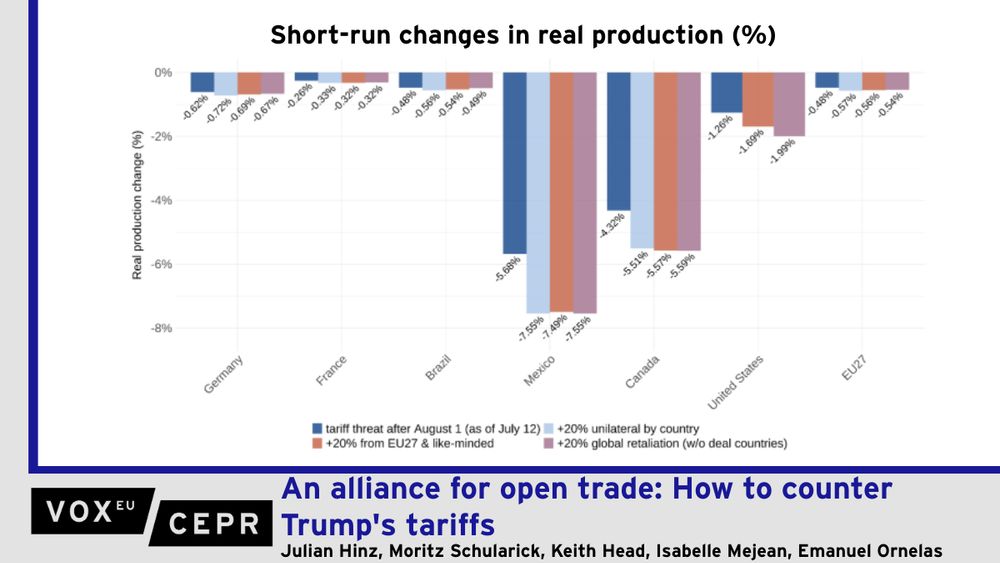Emanuel Ornelas
@emanuelornelas.bsky.social
110 followers
120 following
6 posts
Professor of Economics @ Sao Paulo School of Economics - FGV
Research on International Trade; Torcedor do/Fan of CAM; 🇧🇷🇬🇧
https://sites.google.com/site/emanuelornelaseo/
Posts
Media
Videos
Starter Packs






